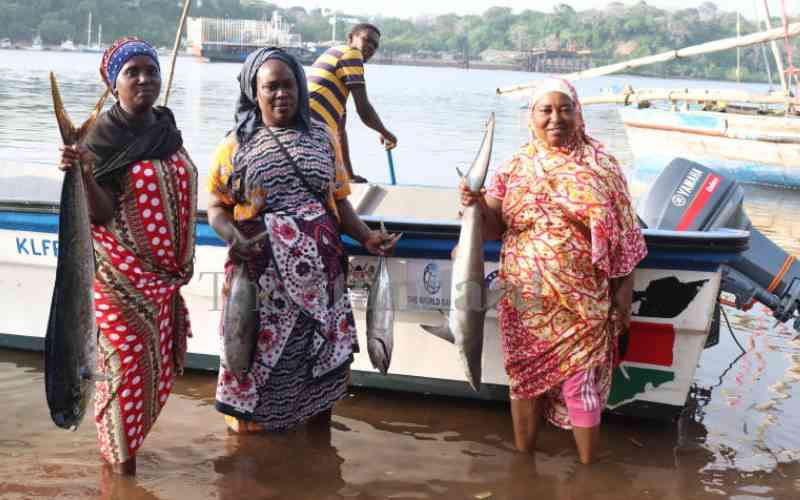×
The Standard e-Paper
Fearless, Trusted News

Born into a family deeply rooted in the fishing tradition, Rukia Pamba Juma has emerged as a guiding light for the Pweza Women Group in Kilifi County since its inception in 2019.
As a mother of eight with more than two decades of experience in the fishing sector, Rukia advocates for local women, aiming to overcome gender inequalities in accessing fish resources, markets, and employment opportunities.